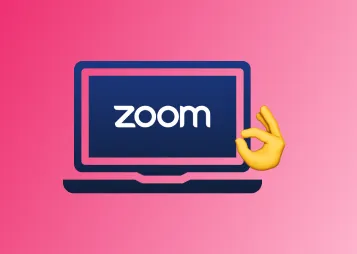60-Second Summary
Sales call scoring is the practice of rating Sales Reps on their calls using qualitative and quantitative metrics like talk/listen ratio, questioning, methodology adoption, and deal progression. For Sales Leaders, it provides a structured feedback loop, highlights coaching priorities, and benchmarks best practice. With automated call scoring powered by conversation intelligence platforms like Jiminny, leaders can analyse calls at scale, track adoption of sales methodologies, and measure coaching impact.
Call scoring isn’t micromanagement - it builds efficiency, encourages skill development, and empowers both new hires and experienced Sales Reps to improve. By sharing high-scoring calls across the team, managers create a learning culture where peer-to-peer coaching and self-coaching thrive. Call scoring helps identify weaknesses before they cause underperformance, creates accountability, and ensures that every rep continually develops. When done right, call scoring becomes a powerful driver of sales performance, enabling teams to close more deals, adopt new methodologies faster, and sustain long-term success.
What is sales call scoring in sales?
Call scoring refers to rating the performance of a sales rep on their calls. It is based on qualitative and quantitative metrics relevant to each business and their sales processes.
Call scoring is fundamental to sales performance coaching, as it equips managers and reps with the information they need to analyze and measure their performance, indicating the key areas for improvement.
The score can be made up of any number of criteria and given a score weighting or count relevant to the importance of each one.

Metrics that may be useful to all sales teams include:
- A talk/listen ratio, to ensure reps are listening well enough to their prospects
- Monologue tracking, highlighting areas where the conversation became one-sided
- Talking speed, so you know if your reps are talking too quickly to be heard
- Question rate, to make sure your reps are engaging in prospect qualification
Scoring can then be elevated to include more in-depth analysis and include metrics relevant to your specific business. For example:
- How well the rep followed a given sales methodology like BANT or MEDDPICC
- How well they presented the value proposition
- Whether they discussed a new product or feature sufficiently
- Whether they identified any deal risks
- How comprehensively they confirmed the decision-makers and decision-making criteria
- Whether the rep proposed and confirmed a next step for the sale
As a sales team, you have top-level targets to hit at the end of a given period and metrics that help assess progress during the period.
Similarly, call scoring assesses progress by providing a structured feedback loop, with end goals and progress metrics.
It gives sales reps and leaders visibility into how well their day-to-day actions contribute towards individual and team sales targets. It will identify areas of weakness before they cause long-term issues or underperformance.
What are the benefits of sales call scoring?
For sales leaders, call scoring maximizes the value of your time to coach your team. You and your reps better understand their performance so coaching can focus on weaknesses, making coaching more impactful.
In addition to this, you’ll have better visibility on how effective your coaching time is, as you can better track progress in future calls.
Call scoring also allows you to measure how well a new methodology has been adopted or whether reps are keeping up to date with the new features and products to sell.
Finally, call scoring creates a benchmark of what best practice looks like for your team. Calls that score highly on your criteria can be shared and analyzed by the rest of the team to understand how they can improve and share learnings between each other.
Methods of sales call scoring
Call scoring requires some form of sales call recording to make it a viable practice - unless you want to take the time to sit with your reps and score their calls live, that is.
If your reps are recording their sales calls, the whole process is a lot easier, although it can still be quite time-consuming. How do you know which calls to listen to? And can you get a realistic overview of your reps' performance without listening to all of their calls?
This is where conversation intelligence comes in.
Conversation intelligence tools like Jiminny offer Automated Call Scoring, so the heavy lifting of reviewing and scoring calls is done for you.
Automated call scoring involves:
- Setting up themes, topics and triggers in your Jiminny account to create the criteria to be scored.
- Creating a scorecard to compile the relevant themes, topics and triggers required to achieve a high call score.
- Creating rules for your scorecards, so they are relevant to an activity type. For example, a cold call might have different scoring criteria and rules to a demo call.
- Further defining rules, to add counts to the relevant criteria as required.
At the end of each call, Jiminny generates a recording and transcription, alongside a score for the call, on the basis of the criteria you set up. As a manager, you can then review a rep’s entire day, week, or month of calls to see how they are scoring and on which criteria they are scoring the lowest.
Call scoring… or micromanagement?
Don’t go thinking this is some kind of Big Brother business practice or an attempt to micromanage everything your reps do. Far from it.
Call scoring aims to:
- Help save time and encourage continual improvement.
- Increase efficiency and productivity by streamlining development and learning.
- Help teams develop their skills (which the large majority want to do!)
Is call scoring only for new hires or junior reps?
Call scoring will have an incredibly positive impact on new hires and junior sales reps, showing them in a clear and digestible way what a good call looks like and creating structure for their development.
However, that doesn’t mean it can’t benefit more senior or experienced members of the team as well.
If the world's top athletes receive scoring, feedback and coaching, why shouldn’t an experienced sales rep? The whole process is designed to improve performance, regardless of a rep’s starting point - there are always ways to learn and get better.
And sales is always changing! New methodologies, products, features and language come into use all the time. So adding structure to track such things supports the efforts of managers and reps alike.
The gamechanger: self-coaching with sales call scoring
Call scoring isn’t just useful for managers to coach reps - it also empowers reps to self-coach and peer-to-peer coach.
Equipped with the knowledge of where they need to improve, reps can coach themselves or work in groups with their peers to coach each other, share knowledge and advice.
If coaching can happen even without you there, your time as a leader is maximized. A learning and coaching culture forms within your team and the benefits compound.





.webp)






